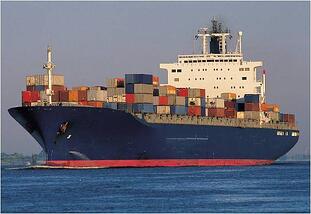In life and business, there are always choices to make. When it comes to international shipping, there are many choices. Of all these choices, the most basic is the decision of what kind of transport to use: air freight or ocean freight. Whether you’re a business that will be shipping overseas all the time or an individual moving to a new country, deciding whether to go with ocean freight or air freight is an important choice. There are four key factors you should consider when making this decision.
How to Determine If You Should Choose Air or Ocean Forwarding
In the end, you have to make your decision along two dimensions: Speed and Reliability vs. Cost and Environmental Impact. If you absolutely need to know your packages will get there safely and on time, no matter the cost, you are better off with air shipping. If you are more concerned with the impact of your shipping on the environment and with saving money, ocean shipping is a better choice for you.
1. Cost
You probably don’t have to be told to consider the costs before an undertaking. As a business person, you consider the bottom line and as an individual, you have a budget. Naturally, you’re going to want to know which will cost you less, air freight or ocean freight. Typically, you will hear that shipping by ocean is cheaper than shipping by air. And typically, this is true; however, this is not necessarily  the case.
the case.
To make the best decision, it helps to be educated about how carriers charge for international shipping. Airlines bill you by what is called a chargeable weight. Chargeable weight is calculated from a combination of the weight and size of a shipment. Sea carriers charge per container rates for shipping in standard containers (20’ and 40’ being the most common sizes). While weight can factor into the price from sea carriers, their charge tends to be based more on the size of a shipment. If you are shipping less than a container load, your price is often determined by cubic meter. With larger and heavier shipments, it is often much cheaper to ship by sea. As a shipment gets smaller, the margin between the prices gets smaller and sometimes air will even end up less expensive.
Shippers should note that there are destination charges to consider. Whether shipping by air or by sea, there will be customs and destination fees. While the actual shipment cost of sea freight is usually cheaper than the shipment cost of air freight, the warehousing fees at seaports are many times more expensive than those at airports.
2. Speed
When it comes to speed, there is no question that air freight is usually much  faster. Since time is money, this factor could more than make up for a higher cost of flying cargo. Many sea shipments can take around a month to arrive while an air shipment takes a day or two. For most business shipping, faster is better. When it comes to the individual moving a household, it is often good to have the extra time to prepare for the arrival of household goods in a new country. It should be noted that technology keeps moving forward in the international shipping world. Ships are getting faster. Canals have created shorter shipping routes. There are many ocean freight shipments crossing the oceans and being delivered in as few as 8 days.
faster. Since time is money, this factor could more than make up for a higher cost of flying cargo. Many sea shipments can take around a month to arrive while an air shipment takes a day or two. For most business shipping, faster is better. When it comes to the individual moving a household, it is often good to have the extra time to prepare for the arrival of household goods in a new country. It should be noted that technology keeps moving forward in the international shipping world. Ships are getting faster. Canals have created shorter shipping routes. There are many ocean freight shipments crossing the oceans and being delivered in as few as 8 days.
3. Reliability
Reliability is something we all look for in people, businesses, products, and services. How does ocean freight and air freight stack up against each other in this category? Air freight shipping has a much, much shorter history than ocean freight shipping, yet air freight tends to win the battle of reliability. Flights get delayed by weather and other factors, but airlines tend to be very on top of their schedules. Ocean carriers are notorious for being bad about this. It is not uncommon for ships to be off schedule. For many, a day or two here or there doesn’t hurt; however, for many businesses, a day or two could have serious cost effects. With airlines, there are usually daily flights back and forth between major cities around the world. Because of this, missing a flight doesn’t cause much of a delay for a cargo shipment. Ocean lines tend to have weekly schedules. Missing the cutoff at a seaport means a longer delay.
4. Environmental Impact
Not everything is about the bottom line and convenience. While the social awareness of environmental issues can change the way the public looks at a company and affect its bottom line, we all have a responsibility of taking care of the planet on which we live. It would seem that ocean freight wins this category. CO2 emissions are much higher in air freight transport than ocean freight transport. This causes cargo shipping by air to have a much larger carbon fingerprint than cargo shipping by sea. However, considering oil spills and the water ecosystems affected by ocean freight, gives pause. Perhaps the jury is still out on this final factor.
Contact Universal Cargo for Commercial Air or Ocean Freight Forwarding
Fortunately, Universal Cargo Management can help you whether you need air freight forwarding or ocean freight forwarding. We have provided commercial freight forwarding both by sea and by air for decades. We can even help you decide which type of freight forwarding will be best for your business.
Whichever you choose, our trained experts will do everything possible to meet your needs when it comes to shipping your goods, whether that means speed, reliability, keeping costs down, or taking the most environmentally friendly route. We have a huge network of transportation professionals that allows us to find just the right shipping strategy for you.
On top of all that, we take care of all the complex logistics of shipping goods by air or by ocean, including knowing which documents you will need to present at customs and making sure they are prepared correctly, plus dealing with warehousing issues on either end of the shipping journey.
While you may have questions about air freight shipping vs. ocean freight shipping, when it comes to freight forwarding, there really is no question. Contact Universal Cargo Management for free freight rate pricing now.


Great information Indeed, the factors regarding air freight & ocean freight are explained very well.
Does your website have a contact page? I’m having trouble locating it but, I’d like to send you an e-mail. I’ve got some suggestions for your blog you might be interested in hearing. Either way, great site and I look forward to seeing it improve over time.
Hover on the “COMPANY” tab of the menu bar and then click on “THE TEAM” to contact individuals in the company, myself included. I’ll let you pull it up there to avoid spam that might pop up from typing my email out in the comments section. I look forward to reading your suggestions.
Thanks for explaining some of the advantages of air freight. Even though air shipment is a fairly new process, it is good to know that it has become the faster, more reliable option. It seems like more shipping companies will want to use air freight.
It’s so true that reliability is something that we tend to look for in people, business, products, and services. That’s one quality that I feel is extra important if you need assistance transporting cargo. That’s why I figure it’s best to research and compare your options for shipping your freight.
There can be more than four reasons that why air freight should be taken into consideration vs the ocean freight. The best way to save one’s time is opting for air freight as it is much faster than any other mode of transportation.
some suggestions and insight into their transportation needs. Here are some things to consider.
a) Given cost and service needs what would you propose as the best way to address how to get products to consumers? Justify your answer.
b) What would be some of the transportation risks involved here and what would you probably need to do to manage and mitigate the supply chain risks in this case?
c) What are some of the normal transportation needs to consider?
d) How would you base your decisions on carrier selection? Remember that you will need to get product to market as quickly as possible.
e) What are some of the intermodal questions Universal Cargo will need to address?
f) Should you move some product via air? Why or why not?
g) How does “landed cost” fit into your calculations? Remember that you have to get product to market quickly but also incorporate all of your costs to the retail stores and distribution centers.
h) How does the nation’s infrastructure affect your plans? What can you do to mitigate these issues?
i) Given the changing retail landscape what would you suggest to your logistic company for immediate and long-term consideration?
1. From the above discussion, I’ll bet you would consider using a 3PL. How can 3PL service providers help shippers such as Universal Cargo improve performance and reduce costs? Why is information technology an important issue to customers when outsourcing transportation and logistics activities and why do 3PL’s do this very well? What value do third party logistics companies bring to global transportation execution? Some things they do involve international freight forwarders, NVOCCs, and Customs brokers. Briefly define each of these specialties and how best to determine 3PL needs. Explain how 3PL’s become 4PL’s.
Hi Jared, very clear, and simple post. And, clearly air freight is verdict in most of the cases.
it is a good blog.
I believe that ocean freight transport works better for me than air freight transport. The environmental damage found in air freight transport is a dealbreaker for me. When I took a business trip to a different country, I had to transport my car, so I opted for ocean freight transport.
Thanks for sharing info about Factors for Ocean Freight. your post helped me a lot. Thank you so much and waiting for more.
Thanks for sharing info about Factors for Ocean Freight. your post helped me a lot. Thank you so much and waiting for more.